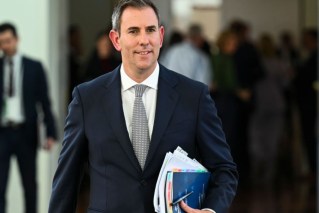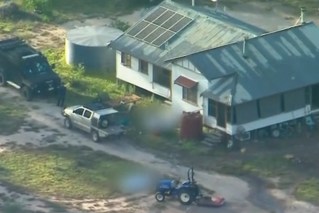AstraZeneca vaccine ‘100 per cent effective’, but one-third of Aussies reluctant to get jab

Another piece in Australia’s long-awaited COVID vaccine program has fallen into place, with the official approval of AstraZeneca’s jab – found to have “100 per cent efficacy” against serious illness and death.
But with the nation still a week off starting vaccinations and most Australians to still wait months before getting their first dose, the head of the Therapeutic Goods Administration has advised people not to get too bogged down in efficacy rates, saying “a lot of the discussion on numbers is not particularly relevant”.
It comes as new data from the health department found more than one-third of Australians say they are either “unsure” or “definitely will not get a vaccine”.
Today the AstraZeneca vaccine for #COVID19 has been approved for use in Australia, the second vaccine to receive such approval from our own world-class independent safety regulator, the TGA, having been found to be safe and effective. Read more 👉 https://t.co/uJ3zMWYfse pic.twitter.com/M2aFqjQsgx
— Scott Morrison (@ScoMo30) February 16, 2021
On Tuesday, the TGA gave its final tick of approval to the University of Oxford and AstraZeneca’s “ChAdOx1 nCoV-19” vaccine.
Just 24 hours earlier, the first vials of the Pfizer vaccine had touched down in Australia, a double-barrel blast to truly kickstart the rollout.
“AstraZeneca is cleared for lift-off,” Health Minister Greg Hunt said, continuing the space-themed metaphors he began on Monday.
The federal government has been criticised for its timetable, with more than 170 million people in dozens of countries having received a COVID jab so far, but not one Australian due to get even their first shot until February 22.
Many other nations have given fast-tracked ’emergency approval’ to vaccines, a path Australia did not take.
How good is the AstraZeneca vaccine?
The TGA admitted “it is not yet known whether it prevents transmission or asymptomatic disease”.

The TGA has approved the vaccine. Photo: Getty
Questions had also been raised about AstraZeneca’s effectiveness, which had previously registered just 62 per cent efficacy in earlier trials.
This compares to 95 per cent for Pfizer and 89 per cent for Novavax, the third vaccine in Australia’s portfolio.
However, more recent studies registered an 82 per cent efficacy for AstraZeneca, when the two doses were given 12 weeks apart.
The TGA has recommended this timing for Australians receiving that vaccine.
“It showed 100 per cent efficacy against severe disease, illness and death,” said Professor John Skerritt, head of the TGA.
“What is important with that 12-week interval is it seems if you leave it more and more weeks, that you do get greater protection.”
Australia has 20 million doses of the Pfizer vaccine, which will arrive progressively through 2021.
Most Australians are likely to receive AstraZeneca, with 50 million doses to be made at Melbourne’s CSL.

Scott Morrison at the CSL lab last week. Photo: AAP
Some epidemiologists had raised concerns about the efficacy rates of the different vaccines, calling for the government to secure far more Pfizer.
However, Professor Skerritt also warned people about getting too concerned about those numbers.
“Frankly, there’s not a difference when you go into the real world whether something is 82 per cent or 90 per cent,” he said.
“I would emphasise that a lot of the discussion on numbers is not particularly relevant. What is important is to get vaccines into people’s arms.”
Vaccine rollout begins on Monday
Mr Hunt said the first Pfizer jabs are likely to be administered on February 22.
He said some 240 aged-care homes would be part of the very first jabs, with border and quarantine workers to be a “specific focus” of the first weeks.
More doses of Pfizer are expected in coming weeks, with Mr Hunt expecting the first shipment of AstraZeneca to arrive from overseas “in early March, if not earlier”.

Australia’s vaccine roadmap. Photo: Department of Health
In a call with journalists on Tuesday, AstraZeneca’s Australian president Liz Chatwin said the company was working “at pace” to bring international doses “as soon as possible”, and to have CSL-made doses by late March.
However, Ms Chatwin could not confirm how many vials from overseas would be brought to Australia in early March, stressing that Australia was relying mostly on locally made doses from CSL.
Ms Chatwin said the company had “encouraging data” on the vaccine’s effect on stopping transmission, but that studies were ongoing.
She added Oxford University experts were already working on potential ‘booster shots’, if needed, to upgrade the AstraZeneca vaccine to work better against mutant COVID strains from the United Kingdom and South Africa.
Ms Chatwin said those new vaccines could be available by the end of the year.
One-third ‘unsure’ or ‘definitely won’t’ get jab
Prime Minister Scott Morrison defended Australia starting vaccinations months after other nations, saying the government opted for a full TGA approval.
“This has been, I think, the most efficient and timely process that the TGA I think has ever undertaken for any vaccine,” the PM said.
“And they’ve done it in a way which has cut no corners, ensured every inquiry that they would have undertaken in relation to a vaccine would have been undertaken.
“That is sacrosanct to the effectiveness of the vaccine.”
A health department poll of 4000 Australians found 64 per cent would “definitely” get a vaccine, including 48 per cent who would get one “as soon as it is available”.
The figures, shared by the PM’s office, found 71 per cent of people say they would get a jab by October, when the federal government hopes to finish its vaccine rollout.
But 27 per cent say they are “unsure”, with 9 per cent saying they “definitely will not” get a jab.
Sceptics cited reasons including their concerns about side effects, and claims that vaccines had been developed too quickly.
The federal government has long been concerned about anti-vaxxer sentiment potentially affecting the success of the rollout, with a rigorous TGA assessment process seen as a key way to combat that.
The same reasoning was behind the Prime Minister’s “dressing down” of fellow Liberal MP Craig Kelly, with Mr Morrison telling the backbencher that his claims about debunked COVID treatments were a danger of affecting vaccine takeup.








